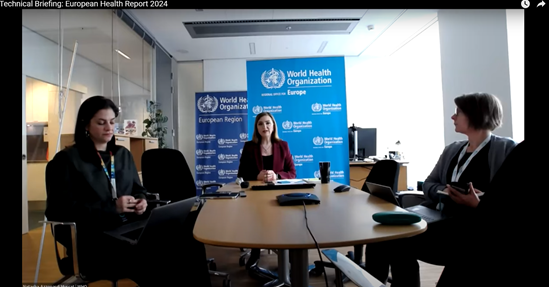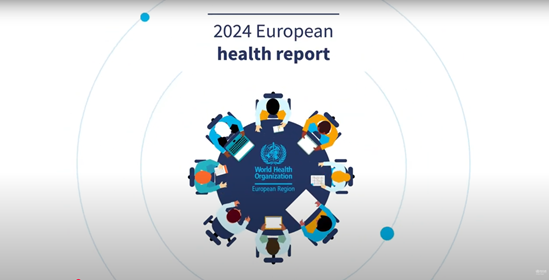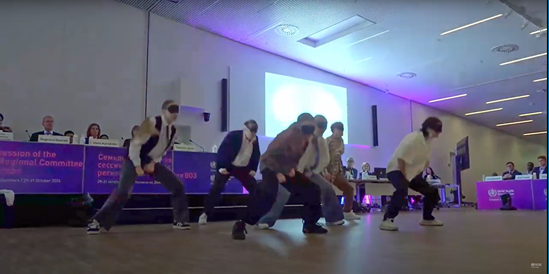Addressing child and adolescent mental health
WHO/Europe supports countries to improve the mental health and well-being of children, adolescents and young people.
Childhood, adolescence and young adulthood are critical stages of life for mental health and well-being, when people develop skills in self-control, social interaction and learning. Negative experiences – at home due to family conflict or at school due to bullying, for example – have a damaging effect on the development of these core cognitive and emotional skills. The socioeconomic conditions under which children grow can also have an impact on their choices and opportunities in adolescence and adulthood.
Childhood and adolescence provide a unique window of opportunity to support mental health. Mental health care and support are most effective when received early; hence intervening during this period can treat and prevent mental health difficulties.
Such early intervention is needed. Currently, suicide ranks as the fourth leading cause of death among 15–19-year-olds, and 75% of mental health conditions begin by age 24. In the WHO European Region in 2021, an estimated 1 in 5 adolescents had a mental health condition. Life satisfaction has also been declining among adolescents. However, the majority of children and adolescents in need of mental health care do not receive the necessary support.
To address these issues, WHO/Europe has prioritized the mental health and well-being of children and adolescents within the WHO European Framework for Action on Mental Health (2021–2025), and operationalized it as one of the working packages of the pan-European Mental Health Coalition. Examples of initiatives include the following.
- The WHO Mental Health Flagship, through its pan-European Mental Health Coalition and in collaboration with the WHO Office on Quality of Care and Patient Safety in Athens, Greece, is working to improve young people’s mental health by:
- promoting engagement of adolescents and young people in mental health service design and delivery; and
- fostering exchange of best practices in the prevention, promotion and treatment of mental ill health.
- With the support of the Government of Greece, WHO/Europe, through its WHO Office on Quality of Care and Patient Safety, created a programme on quality of mental health care for children and adolescents, focusing on:
- co-developing the first WHO quality standards for child and adolescent mental health services and tools to support their implementation;
- promoting innovation to overcome common challenges for high-quality care provision for child and adolescent mental health;
- strengthening research and data collection for child and adolescent mental health; and
- capacity-building for policy-makers in specific countries through the first WHO Autumn School on Quality of Child and Adolescent Mental Health Care.
- Every 4 years, WHO/Europe conducts the Health Behaviour in School-aged Children survey, a collaborative cross-national study of the health and well-being of 11-, 13- and 15-year-olds. This survey identifies the status of and trends in health and well-being among young people, including factors affecting their mental health.
- WHO and the United Nations Children’s Fund (UNICEF) have partnered to strengthen mental health supports for children and adolescents, including quality of care, prevention of mental health conditions and promotion of well-being, through the Joint Programme on Mental Health and Psychosocial Well-being and Development of Children and Adolescents, and the Helping Adolescents Thrive initiative and toolkit.












